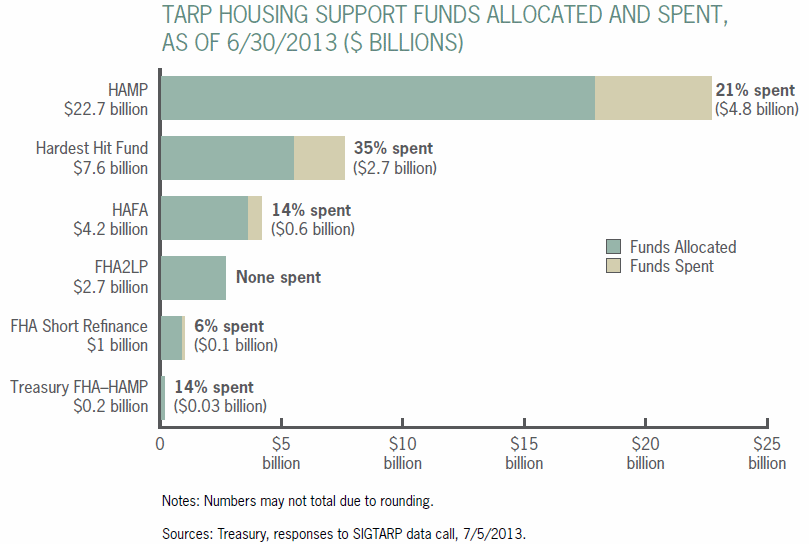Blog

HAMP Redefaults a Cause for Concern or Business as Usual?
Among topics covered in a report fromrnthe Special Inspector General for the Troubled Asset Relief Programrn(SIGTARP) issued today was a critical summary of the Home AffordablernModification Program (HAMP). SIGTARP said that nearly half of thernmortgages that were modified in 2009 under the program haverndefaulted. However, at the program has matured, so has the defaultrnrate which has improved steadily over the life of the program. </p
HAMP was launched by the ObamarnAdministration in April of 2009 and had its first permanentrnmodifications in place, just over 5,000 of them, in the third quarterrnof that year. Of that first batch 2,345 have defaulted, the highestrndefault rate across all quarters. Even the 30,000 modifications putrnin place in Q4 of 2009 are running a lower rate with 12,489 o 41.5rnpercent of the mortgages redefaulting. Modifications put in place inrn2010 have a default rate of 28.1 percent.</p
While the 2009 vintage of modificationsrnare the only ones that have aged for more than three years, it isrnclear from SIGTARP’s data that the longer a modification is in placernthe higher the default rate and the report urged HAMP to developrnbetter protocols to make mortgages more sustainable. Still, thernpattern of default at earlier periods show that the later vintagesrnare performing better than the headline numbers indicate. </p
For example, as of April 30, eightrngroups of modifications had aged for 24 months. Modifications put inrnplace during the third and fourth quarters of 2009 had default ratesrnat that point of 33.3 percent and 28.2 percent respectively whilernthose originated in the first two quarters of 2011 averaged about 25rnpercent. At twelve months the oldest 2009 modifications wererndefaulting at 20.5 percent and 15.2 percent; the newest originationsrnto reach that benchmark, modified in Q1 and Q2 of 2012 had defaultrnrates of 10.7 percent and 11.2 percent.</p
SIGTARP says that about 306,000rnmodified mortgages have defaulted over the life of the program;rn969,870 loans have received permanent modifications since the programrnbegan.</p
SIGTARP also points out that only 22rnpercent of the $38.5 billion Treasury has allocated to housingrnsupport programs (which was reduced from an original commitment ofrn$45.6 billion) has been expended. As of the end of June, $8.6rnbillion had been spent, $1.3 billion of that in the quarter thenrnending. </p
The low level of funds expended isrnrelatively consistent across all programs operated under the umbrellarnof the Making Home Affordable (MHA) programs except for the HardestrnHit Fund and some of the amount reported as spent there is actuallyrncash-on-hand or paid for administrative expenses at state housingrnfinance agencies participating in the program. </p
 </p
</p
At the end of June Treasury had activernagreements with 93 servicers, down from 145 that had agreed to participate in MHA programs as of October 2010. Of the $29.9 billionrnobligated to participating servicers only 20 percent or $5.8 billionrnhas been spent.
All Content Copyright © 2003 – 2009 Brown House Media, Inc. All Rights Reserved.nReproduction in any form without permission of MortgageNewsDaily.com is prohibited.
Latest Articles
By John Gittelsohn August 24, 2020, 4:00 AM PDT Some of the largest real estate investors are walking away from Read More...
Late-Stage Delinquencies are SurgingAug 21 2020, 11:59AM Like the report from Black Knight earlier today, the second quarter National Delinquency Survey from the Read More...
Published by the Federal Reserve Bank of San FranciscoIt was recently published by the Federal Reserve Bank of San Francisco, which is about as official as you can Read More...

Comments
Leave a Comment